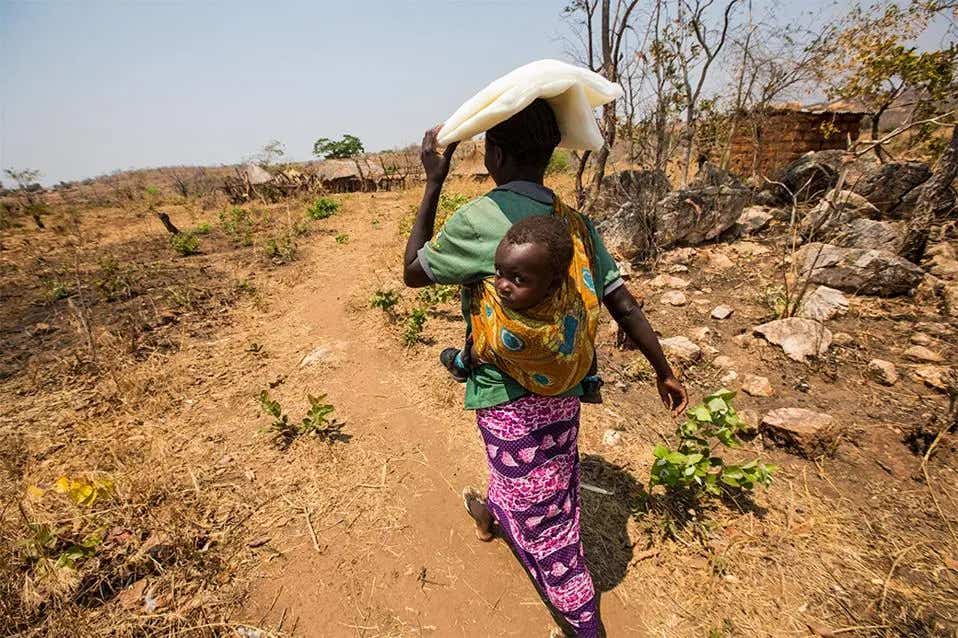Breakthrough research links climate change, global warming and malaria
Malaria, a disease transmitted by infected mosquitoes, poses a significant threat to public health in tropical and subtropical regions

Malaria, a disease transmitted by infected mosquitoes, poses a significant threat to public health in tropical and subtropical regions worldwide. (CREDIT: The Global Fund / John Rae)
Malaria, a disease transmitted by infected mosquitoes, poses a significant threat to public health in tropical and subtropical regions worldwide. According to the World Health Organization, an estimated 249 million cases of malaria resulted in 608,000 deaths across 85 countries in 2022, including the United States.
Despite progress in combating the disease, malaria remains a significant barrier to both human health and economic development in affected regions.
One concern among scientists is the potential impact of climate change on malaria transmission. However, until recently, there has been limited understanding of how temperature influences the spread of the disease.
A view of the midgut of an Anopheles gambiae mosquito with dozens of oocysts growing in it. (CREDIT: Eunho Suh)
A groundbreaking study published in the journal Nature Communications sheds new light on this issue. Researchers from the University of Florida, Pennsylvania State University, and Imperial College conducted experiments to examine the effects of temperature on malaria transmission in different environments in Africa.
Matthew Thomas, a professor at the University of Florida, explained, "Temperature affects key traits such as mosquito longevity and the time it takes for a mosquito to become infectious after feeding on an infected host."
However, these temperature dependencies had not been adequately measured for the primary malaria vectors in Africa.
Related Stories
The study focused on Anopheles gambiae mosquitoes, which are a major carrier of Plasmodium falciparum, the most prevalent species of malaria in Africa.
By conducting detailed laboratory experiments, the researchers were able to observe how temperature influenced the mosquitoes' ability to transmit the parasite.
Eunho Suh, one of the lead authors of the study, highlighted the importance of the findings. "Our research provides new insights into how temperature affects the transmission of malaria," Suh said. The study revealed that parasite development in mosquitoes can occur more quickly at cooler temperatures than previously thought.
Furthermore, the data suggested that the rate of parasite development is less sensitive to changes in temperature than previously believed. This finding challenges earlier predictions about the impact of climate warming on malaria transmission.
The study also examined transmission potential across different locations in Kenya, representing varying environmental conditions. Contrary to previous assumptions, the researchers found that the anticipated surge in malaria transmission due to climate warming may be less severe than feared, particularly in cooler regions like the Kenyan Highlands.
Thomas emphasized the need to reevaluate conventional understanding of mosquito ecology and malaria transmission. "Some of the current assumptions are based on outdated research," he said. The study underscores the importance of revisiting these assumptions to improve our understanding of malaria transmission dynamics.
A microscopic view of matured oocysts on a midgut of Anopheles gambiae mosquito. (CREDIT: Eunho Suh)
Suh pointed out that the findings have implications beyond malaria. "Similar research is needed for other vector-borne diseases like dengue and Zika virus," he said. Understanding the effects of temperature on transmission risk is crucial for developing effective strategies to control these diseases.
The study represents a significant step forward in understanding the complex relationship between temperature and malaria transmission. By providing new insights into how temperature influences parasite development in mosquitoes, the research paves the way for future studies aimed at controlling malaria and other vector-borne diseases on a global scale.
For more science and technology stories check out our New Discoveries section at The Brighter Side of News.
Note: Materials provided above by University of Central Florida. Content may be edited for style and length.
Like these kind of feel good stories? Get the Brighter Side of News' newsletter.



